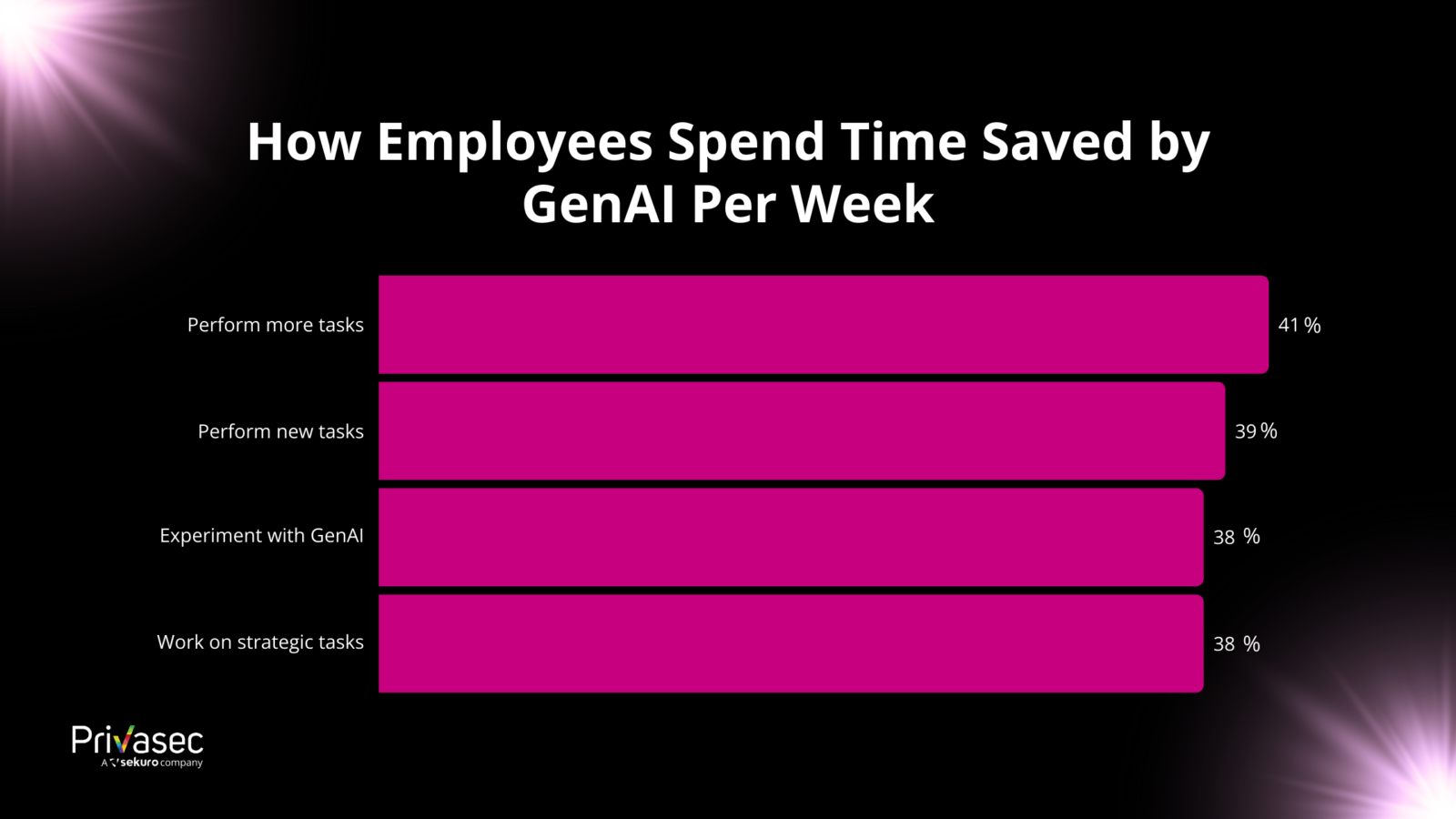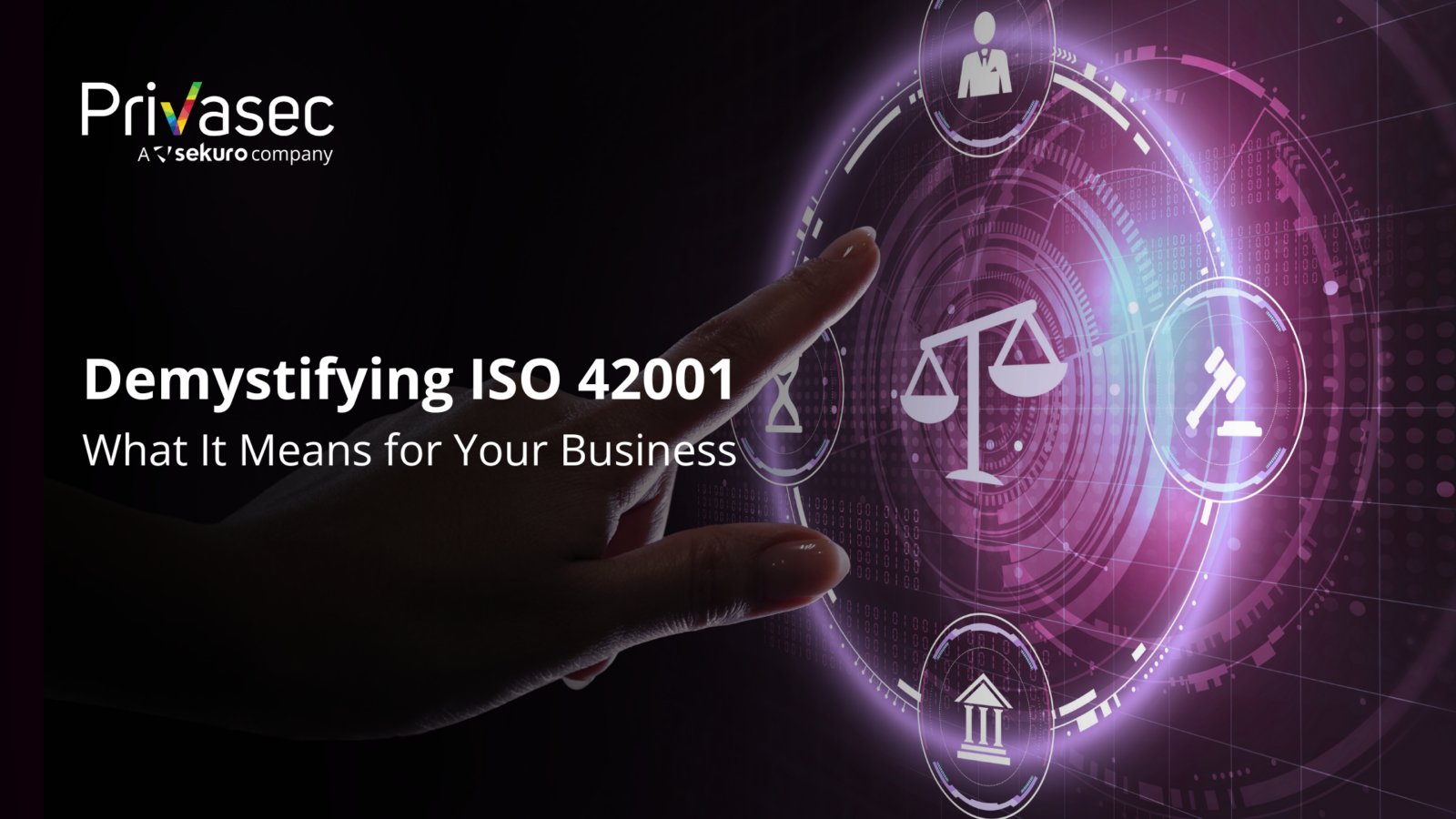Artificial intelligence (AI) is quickly becoming a standard feature of everyday business in the modern age. Today, it is turning into a “must-have” from a “good-to-have.” According to a recent survey, 65% of the organisations regularly use Generative Artificial Intelligence (Gen AI). On the other hand, another recent report from BCG Global stated AI has allowed employees to have extra time to perform more tasks or new tasks, experimenting with GenAI, and working on strategic tasks.

Data source: BCG Global
AI has huge contributions to task execution, automation of standard processes, and advanced data analytics for single professionals and companies alike. With major benefits like increased customer engagement, better analysis of data, automated procedures, strategic recommendations, and improved decision-making, it makes the realisation of both innovation and efficiency possible.
Though powerful, AI systems are not without risks. Biased algorithms and lack of transparency expose big issues in ethics and operations, while misusing AI remains a possibility. Controls within the organisation should be developed to ensure its implementations of AI are effective, ethical, and trustworthy.
To address the complexities of managing AI risks and dealing with ethical issues, ISO 42001 has come into play and is becoming one of the upcoming important standards. The comprehensive framework for establishing and maintaining an AI Management System allows organisations to better handle AI in a responsible manner.
What is ISO 42001?
ISO 42001 is an international standard designed to help organisations develop, implement, and maintain effective AI management systems. Its principal mission is to ensure that AI technologies are responsibly and ethically deployed in accordance with organisational goals and regulatory requirements.
Core Principles and Components
The four key principles are:
- Transparency
- Accountability
- Fairness
- Reliability
These four guiding principles are the foundation for the development of AI systems that are not only effective but also ethical and trustworthy. Other core elements of the standard include risk management, compliance, and processes for continual improvement.
Key Requirements for Establishing an AI Management System (AIMS)
To set up ISO 42001, organisations must:
- Be able to undertake an overall risk assessment to identify any potential risk related to AI
- Design and implement various policies and procedures for risk management
- Set up a governance structure providing oversight of AI activities and conformance to ethical and regulatory standards
- Allow for the ongoing monitoring and review of AI systems to ensure their continued effectiveness and ethical conformance
Benefits of Implementing ISO 42001
Compliance with Regulations
ISO 42001 helps organisations ensure conformance to all existing and new regulations concerning AI, avoiding associated legal penalties and achieving compliance.
Improved AI Governance and Risk Management
By following the standard, organisations will be better placed to establish sound AI governance frameworks that would enable them to have their AI systems managed in a responsible and effective manner.
Enhanced Trust and Reputation
Implementing ISO 42001 demonstrates a commitment to ethical AI, which can enhance trust among stakeholders and improve the organisation’s reputation.
Increased Efficiency and Productivity
ISO 42001 can streamline AI operations, hence improving efficiency and productivity.
According to LinkedIn, AI helps to boost productivity mainly in four ways, including task automation, data analysis and insight, streamlining communication, and personalisation.
Potential Cost Savings
Effective AI risk management and governance can lead to significant cost savings by minimising the risk of costly AI failures and ensuring efficient resource utilisation. According to recent global research, businesses are already experiencing significant benefits from the deployment of Gen AI, reporting both revenue increases and expense reductions.
Conclusion
ISO 42001 offers a robust framework for managing the complexities of AI implementation, addressing both ethical considerations and operational risks. By adopting this standard, organisations can not only comply with regulations but also enhance their trustworthiness, efficiency, and overall success in the AI-driven landscape.
Ready to implement ISO 42001 in your business? Contact us to learn how.






















